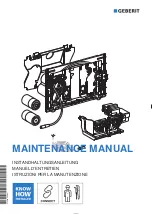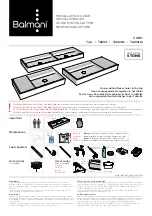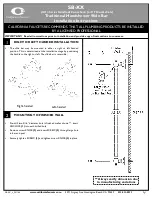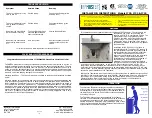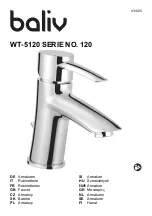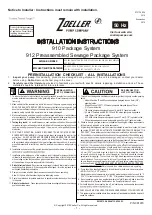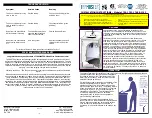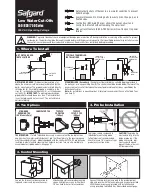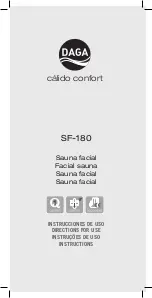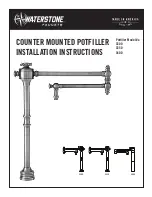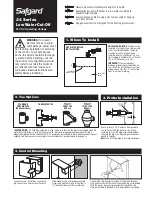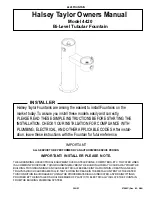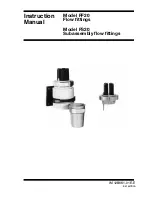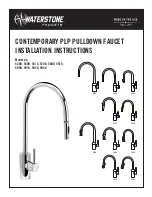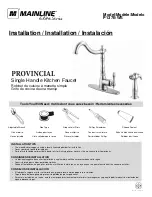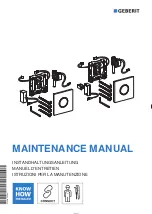
BASIC MECHANISM
The units use a piston to control a high gain pneumatic two-stage servo system. When
increasing the regulated pressure the handwheel is turned clockwise, forcing the
measuring capsule/piston assembly downward. This pushes the pilot diaphragm and
control diaphragm downward. As a result, the main valve opens and the supply pressure
enters the regulator. The resulting pressure change causes the measuring capsule to
compress. This compression causes the pilot diaphragm and the control diaphragm to
move upward, which then shuts the main valve.
When decreasing the regulated pressure, the handwheel is turned counterclockwise,
forcing the measuring capsule/piston assembly upward. This allows the pilot diaphragm
and control diaphragm to move upward. As a result, the relief valve opens and air is
exhausted through the vent. The resulting pressure drops causes the measuring capsule to
expand. This expansion causes the pilot diaphragm and control diaphragm to move down,
which then shuts the relief valve.
To maintain a state of equilibrium, the action of the measuring capsule as described
above ensures a precise constant pressure regulation. Air is bled at a constant rate through
the bleed orifice so that a very small movement of the pilot valve induces a substantial
pilot pressure change, which creates a high servo amplification.











